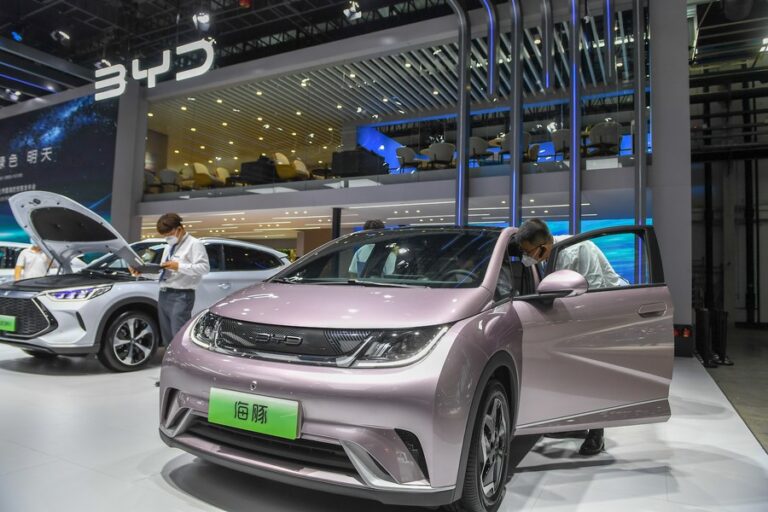BRUSSELS, July 4 (Xinhua) — The European Commission on Thursday said it would impose temporary countervailing duties on imports of electric vehicles (BEVs) from China starting Friday, sparking backlash from various industries.
The tariffs, which will range from 17.4% to 37.6%, will apply to imports of BEVs produced in China.
The three Chinese companies – BYD, Geely and SAIC – will face additional tariffs of 17.4%, 19.9% and 37.6% respectively on top of the standard 10% tariff on European Union (EU) car imports.
The statement added that Tesla’s BEV operators in China have submitted substantiated requests and may receive individually calculated tariff rates at the final stage.
Responding to the EU’s announcement, the China-EU Chamber of Commerce and Industry (CCCEU) strongly opposed protectionist measures and called on the EU to listen to the common voice of Chinese and European companies and take into account their common concerns.
In a statement, the CCCEU said the tariffs would pose a major challenge to future cooperation between China and Europe in the EV industry, particularly for European companies looking to leverage China’s EV supply chain to develop globally competitive products.
“We hope that both sides can quickly find a solution to avoid countervailing measures that undermine mutually beneficial cooperation and common development in the China-EU automotive industries,” it added.
The EU’s decision has been criticised by member states and the automotive industry.
BMW CEO Oliver Zipse said imposing additional import tariffs would “lead to an impasse”.
Advertisement. Keep scrolling to read more.
“It will not strengthen the competitiveness of European manufacturers,” Zipse stressed. “On the contrary, it will have a negative impact on the business models of globally active companies and may even limit the supply of electric vehicles to European customers and slow down the decarbonization of the transport sector.”
Such measures seriously violate the principles of free trade, which the EU also promotes, he added.
“The timing of the European Commission’s decision will have a negative impact on the currently weak demand for electric vehicles in Germany and Europe,” a spokesman for Volkswagen, Europe’s largest carmaker, said in a statement on Thursday.
Volkswagen stressed that “the negative consequences of this decision outweigh the benefits for the European, and particularly German, auto industry.”
The German Association of the Automotive Industry said in a statement on Wednesday that anti-subsidy tariffs would not be in the EU’s interest: “European anti-subsidy tariffs would not only affect Chinese manufacturers, but especially European companies and their joint ventures.”
The EU says most of the cars it imports from China are made by Western manufacturers, and the announced anti-subsidy tariffs are even higher on European companies than on Chinese ones.
The association also cited an analysis that said Chinese manufacturers’ market share in the overall European passenger car market is likely to settle in the range of 5-10 percent, and noted that excessive market penetration of Chinese-made electric vehicles is not expected in the medium to long term.
“The EU should refrain from imposing its announced anti-subsidy tariffs and instead find a negotiated solution with China,” the association said.
The association’s president, Hildegard Mueller, stressed that an open and constructive dialogue between China and the European Commission is “absolutely necessary” to find a solution. “We wholeheartedly support this approach and urge both sides to bring the negotiations to a successful conclusion,” Mueller said.
Advertisement. Keep scrolling to read more.
The European Commission noted that discussions with the Chinese government have intensified recently and that contact continues at a technical level with a view to finding a WTO-compliant solution.
The temporary tariffs are a slight adjustment from previously published rates and will be in place for up to four months. The final decision on the final tariffs will be decided by a vote of EU member states. If adopted, the tariffs will be in place for five years.
China’s Commerce Ministry said on Thursday that China hopes the EU will work in the same direction with China and show sincerity in advancing consultations on the EU’s anti-subsidy investigation into Chinese electric vehicles.
Commerce Ministry spokesman He Yadong told a press conference that talks should be based on facts and rules and a mutually acceptable solution should be reached as soon as possible.


